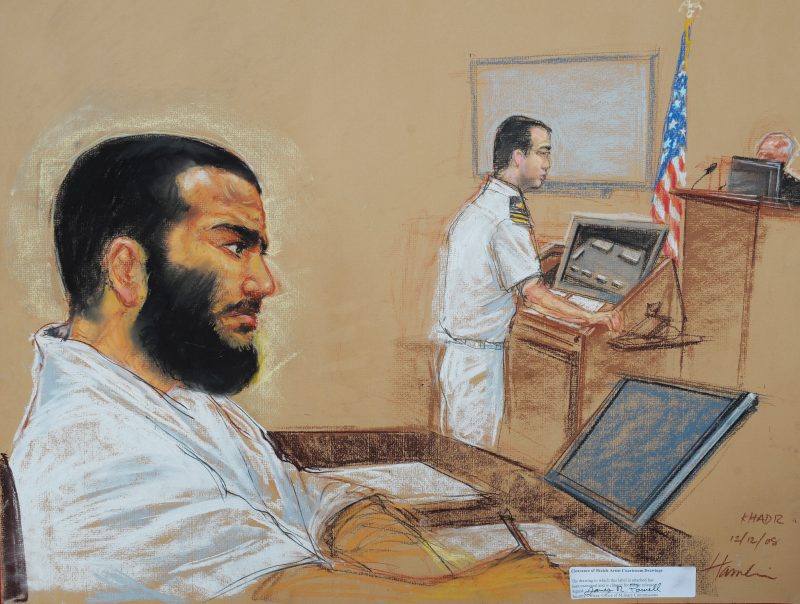Canadian ex-Guantanamo detainee completely free: court
A Canadian judge has lifted all remaining conditions on Omar Khadr, once Guantanamo’s youngest detainee (JANET HAMLIN)
Montreal (AFP) – A Canadian judge lifted Monday all remaining restrictions on former Guantanamo detainee Omar Khadr, who had been the US detention center in Cuba’s youngest prisoner after his 2002 capture in Afghanistan.
Khadr, 32, has been living under strict conditions in his native Canada since 2015 when he was repatriated as part of a US deal for a guilty plea, which he has since recanted, saying he just wanted out of Guantanamo.
Justice Mary Moreau in Alberta province said Khadr’s time in conditional release should be considered as time in detention. She also cited his good conduct to justify lifting the remaining conditions on his movement — including traveling abroad.
Khadr was sentenced in 2010 to eight years plus time served for murdering a US soldier with a grenade, attempted murder, conspiracy, providing material support for terrorism and spying, but was later sent home to serve the remainder of his sentence.
“I think it’s been a while but I’m happy it’s here, and right now I’m going to just try to focus on recovering, and not worrying about having to go back to prison, or, you know, just struggling,” Khadr told reporters as he left the court in Edmonton.
His lawyer Nate Whitling added: “All those conditions that were restricting his liberty up to this point are now gone, so for example he can apply for a passport, he can talk to his sister, he can travel around the world or around Canada without having to seek permission.”
Khadr’s father, a financier for Al-Qaeda who was killed in a clash with Pakistani troops in 2003, had taken his son to Afghanistan as a child.
His lawyers fought for several years to have his status as a minor at the time of the attack recognized. Canada’s Supreme Court finally agreed one week before his conditional release in 2015.
In Canada, Khadr married and was accepted into a nursing program, but says his legal woes — including a civil suit brought by the widow of the special forces soldier he was convicted of killing — sidelined his studies.
A Canadian government payout of Can$10 million (US$7.5 million) to him in 2017 to settle a lawsuit for having violated his rights, provoked outrage.
Disclaimer: This story is published from a syndicated feed. Siliconeer does not assume any liability for the above story. Validity of the above story is for 7 Days from original date of publishing. Content copyright AFP.


